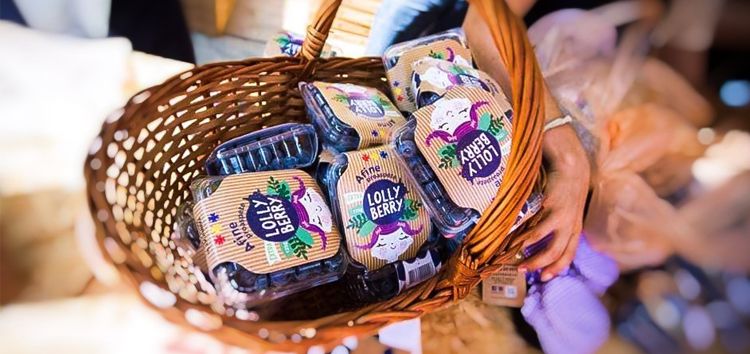EU, EBRD and Sweden support Moldova’s first blueberry producer

Blueberries have become ubiquitous in recent years. Tasty, healthy and renowned for containing some of the highest levels of antioxidants among common fruit and vegetables, their indisputable merits led the EU, EBRD and the Swedish International Development Cooperation Agency (SIDA), to support Lolly Berry, the first blueberry producer in Moldova, with plans to increase production and expand the business to keep up with local demand.
Since the turn of the millennium, consumer food trends have consistently favoured blueberries for their perceived health benefits. They have acquired superfood status and a prominent presence on supermarket shelves.
Lolly Berry was founded in 2013 in response to demand for the fruits reaching the Moldovan market. According to current CEO, Tatiana Bordian-Balan, and co-founder and owner, Natalia Mursa, the company’s unique selling point is that most competitors import their berries from neighbouring countries, while Lolly Berry produces its own, at scale, at their blueberry plantation in Dolna village, in the Straseni region of Moldova.
Cultivating expansion The company sought support from the EBRD Advice for Small Businesses programme on engineering a cold storage facility and producing a business development plan for investment and expansion. Tatiana says that because of our collaboration, they have “reached a new level of development in terms of production and sales, with plans to extend the existing harvesting area in order to meet the demand in the Moldovan market”. The company has eight full-time employees, and during the harvesting season, up to 20 temporary fruit pickers are employed: numbers that will increase as the business continues to grow and diversify.
Lolly Berry also produces the healthy and versatile sea buckthorn: a uniquely flavoured orange berry packed with vitamin C and used in health supplements and food and drink flavourings. Tatiana is passionate about her business and keen to build on its success: “Blueberries and sea buckthorn are relatively new products to the Moldovan market. The assumed health benefits and growing popularity of these fruits makes producing them challenging but rewarding”, she said. A sentiment strongly shared among her staff.
Challenges and the future Growing blueberries in Moldova is anything but routine, and a number of factors can affect the success of a crop. Blueberries can be fussy plants, requiring well-drained soil rich in acid, moisture and organic material to thrive. They are susceptible to drought, and low-quality water or soil can damage a harvest.
To compensate for Moldova’s occasionally hostile climate conditions, the company will soon apply US technology to create more favourable conditions for blueberries to grow. This includes cultivating them in greenhouse-like tunnels above ground, creating a protected environment.
The company currently produces three varieties of blueberries with slightly different taste and appearance, and different ripening times. As the harvesting period runs from June to August, Moldova has its own locally-produced blueberries all summer long. The blueberry fields currently span 13 hectares, and the business plan developed with support from the EBRD includes the expansion of the harvested areas to keep up with the growing demand.
Lolly Berry sells to the main Moldovan supermarket chains and also delivers directly to restaurants and consumers through the company website, its Facebook page, and at fairs across the country.
Key to the business’s success, Tatiana believes that “in managing any company, it is important to have clear objectives, a sense of team spirit, and unwavering determination in the face of adversity”. A strong identity, playful branding and ambitious plans mean that as the popularity of the blueberry continues to soar in a market with little domestic competition, the future looks fruitful for Lolly Berry.
Interesting fact: One of only a handful of foods that are naturally blue in colour, the blueberry is abundant in anthocyanin. This compound is both the pigment and the source of the antioxidant, health enhancing, properties.